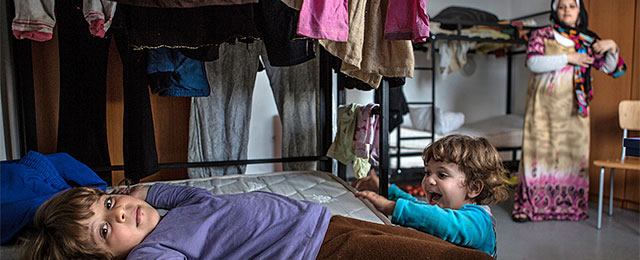Overseeing Reception Conditions | Standards for Living Conditions

Reception conditions refer to the treatment given by a country to asylum-seekers from the moment they apply for asylum, and include access to information at the border, humane conditions in refugee centres, legal counselling, education, medical care, employment, timely asylum procedures, and freedom of movement.
According to international and regional laws, states have a responsibility to respect and ensure the human rights of everyone on their territory. Where asylum-seekers are concerned, they must provide adequate reception conditions in line with international standards.
Countries often decide the kind of support offered refugees and asylum-seekers. Some states provide a minimum level of treatment only while other states offer a broad range of rights and benefits. Also, countries have differing interpretations of minimum standards and conditions.
To address this inconsistency and guarantee that asylum conditions everywhere are in line with international standards, the refugee agency monitors reception conditions and with the help of NGO partners gives advice on making improvements when necessary.
When monitoring reception conditions, UNHCR looks at the time period asylum-seekers spend in detention, general living conditions in the various facilities, qualifications of staff and interpreters in these places, the quality of education provided school-aged children, and the quality of medical care.
Because reception standards can impact a person’s later success integrating into the society. UNHCR considers it vital that states ensure adequate conditions to asylum-seekers, which include language training and social activities. Depending on the length of the asylum procedure, UNHCR also encourages governments to provide asylum-seekers with opportunities to work and provide for themselves financially.
Share on Facebook Share on Twitter
